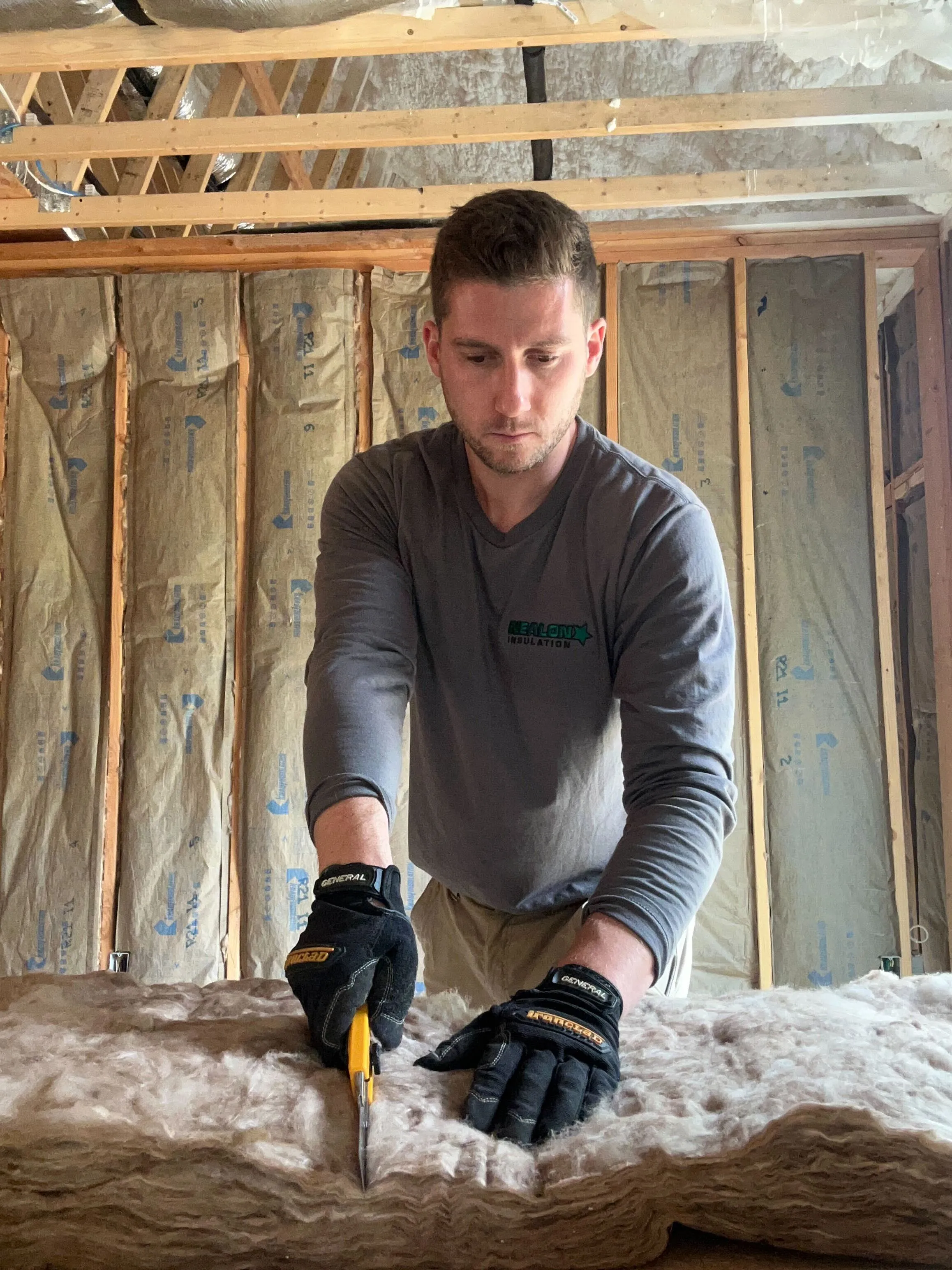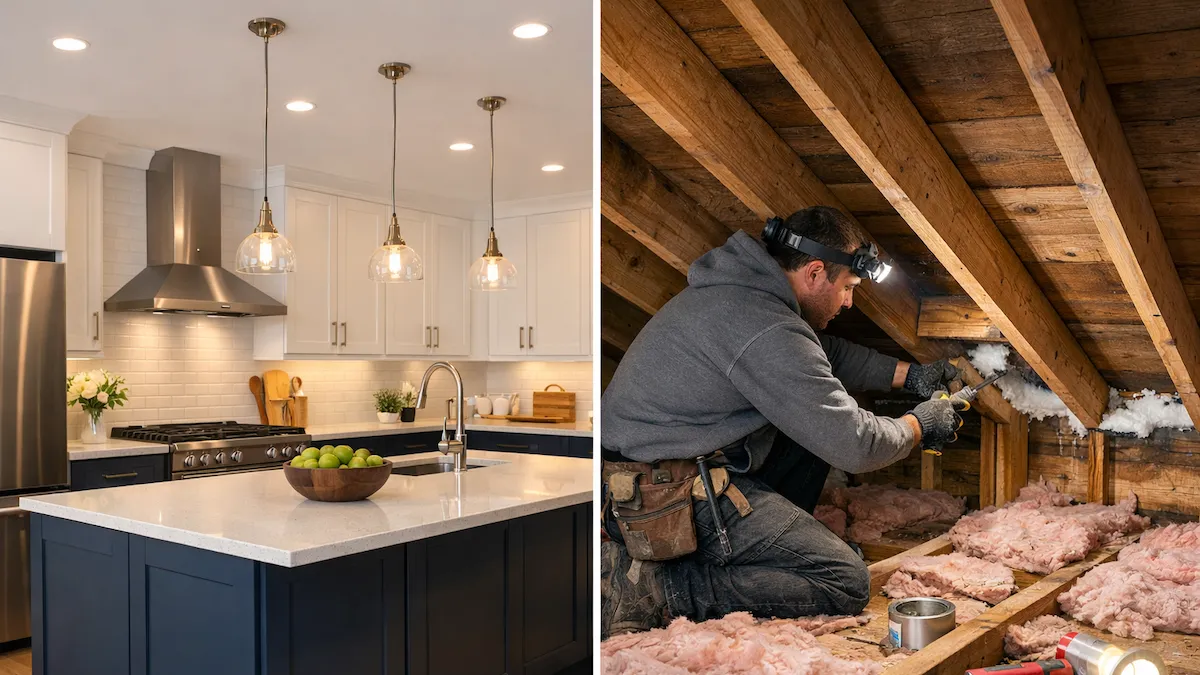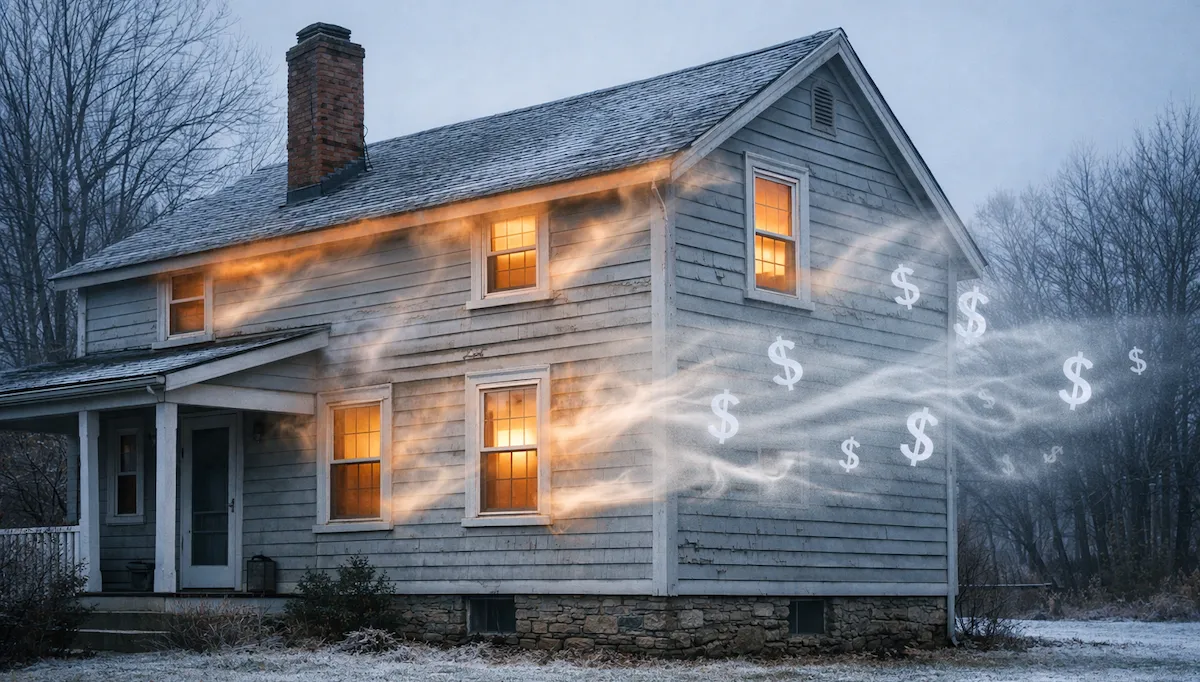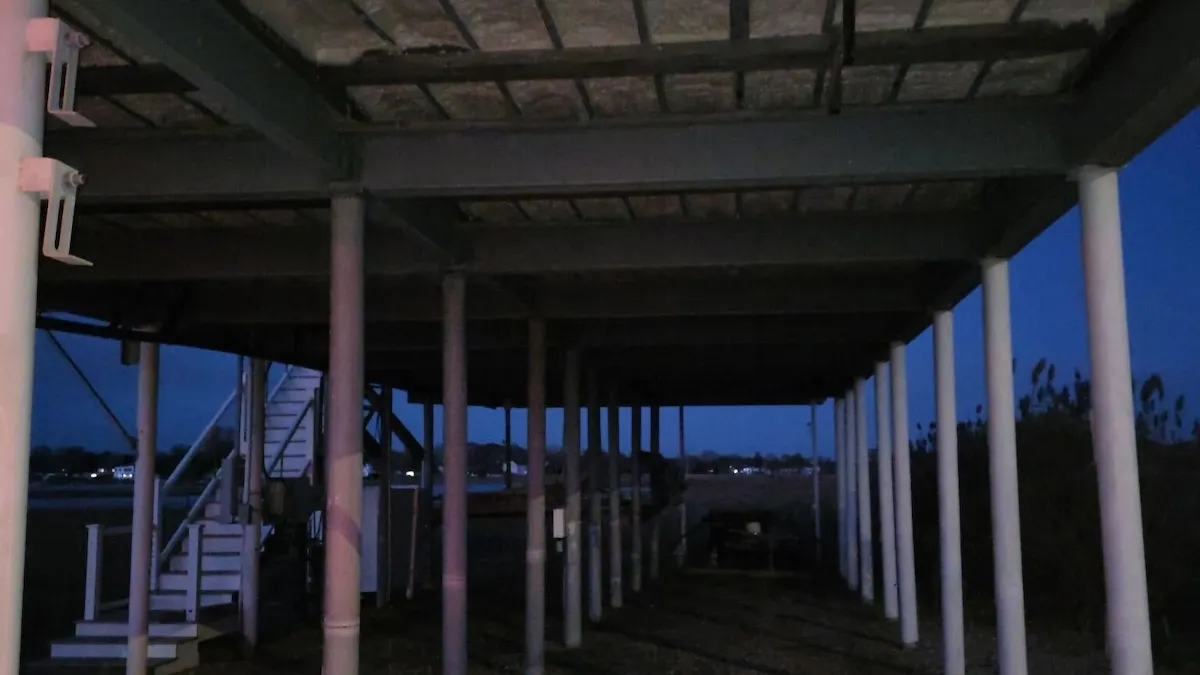What Is the Best Insulation for Walls?
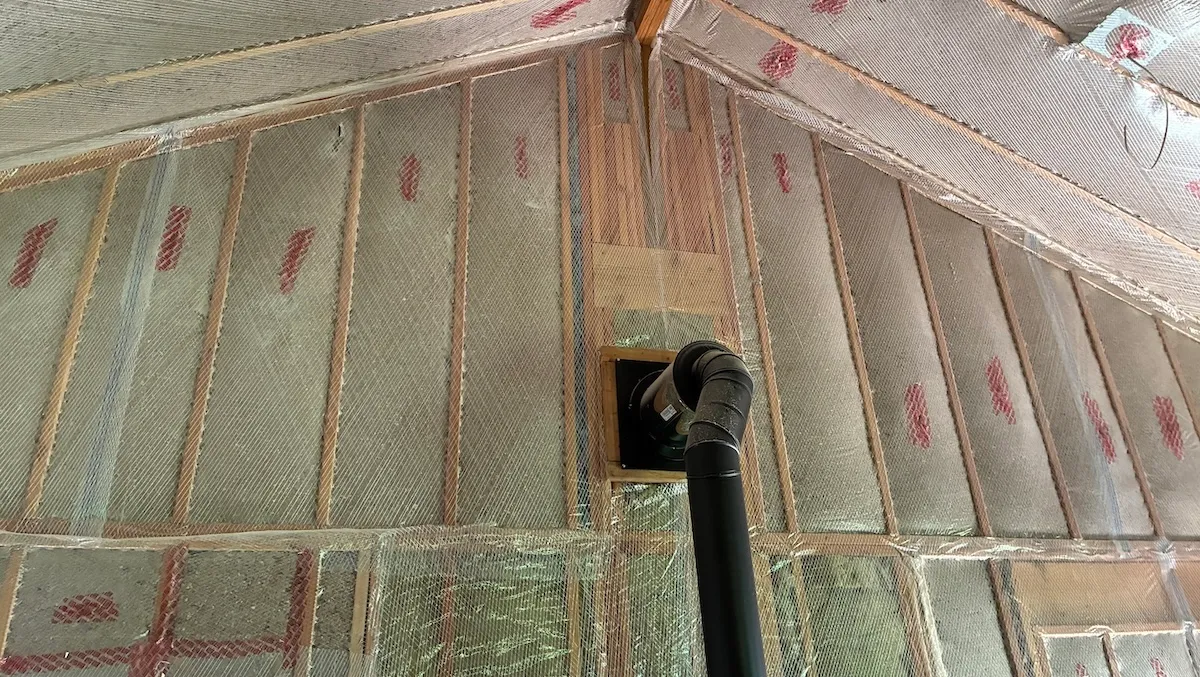
Your walls are doing more than just holding up your roof. They’re the front line in your battle for comfort, efficiency, and quiet. So let’s make sure they’re pulling their weight.
If your home’s walls are hollow, poorly insulated, or stuffed with 1970s-era fiberglass, it’s time for an upgrade. But with all the choices—spray foam, fiberglass, cellulose, mineral wool—how do you know which one actually works best?
Short answer: it depends on your home, your goals, and your budget. Long answer? You’re about to find out.
Welcome to your guide to the best insulation for walls, brought to you by a team that’s been insulating homes across Connecticut since bell bottoms were cool the first time.
Why Wall Insulation Matters More Than You Think
Most people don’t think about the insulation behind their walls—until they feel a draft, get slapped with a sky-high energy bill, or hear every step their kids take in the next room.
Wall insulation plays a critical role in:
- Regulating temperature between rooms and across floors
- Lowering heating and cooling bills
- Reducing noise from outside or within the house
- Blocking moisture and air leaks that lead to mold and rot
In older Connecticut homes especially, exterior walls are often under-insulated—or not insulated at all. That means you're paying to heat or cool the outdoors, and probably not enjoying the comfort you should indoors.
Best Insulation for Each Part of the House: Attic, Walls, Basement & More
Know Your Options: Common Types of Wall Insulation
Let’s break down the top players when it comes to wall insulation. Each one has its pros and cons—and the right one depends on your goals.
1. Fiberglass Batts (The Budget Classic)
Cheap, fast, and available at every big box store. Fiberglass batts are great for open wall cavities and new construction, but they can leave gaps and don't stop air movement well.
Good for: Budget jobs, open framing, simple installs
Not ideal for: Air sealing or older homes with weird wall layouts
Discover more about fiberglass insulation
2. Dense-Packed Cellulose (The Retrofit Hero)
Cellulose is made from recycled paper, but don’t let that fool you—it’s a beast at filling wall cavities, sealing air leaks, and dampening sound. We often use it to insulate existing walls without tearing them open.
Good for: Older Connecticut homes, energy upgrades, air sealing
Not ideal for: Places with high moisture exposure unless paired with proper vapor barriers
Learn more about cellulose insulation
Here's How the Dense Pack Cellulose Works
3. Spray Foam (The Premium Performer)
Closed-cell spray foam gives you high R-value, strong air sealing, and moisture resistance—all in one shot. It’s more expensive, but it performs like a champ and adds structural strength.
Good for: Cold climates, tight spaces, moisture-prone areas
Not ideal for: Tight budgets or retrofits in finished walls
Learn more about spray foam insulation
How to Choose the Best Insulation for Your Walls
Here’s what really matters when deciding:
- Age of your home: Old homes? Cellulose is often the MVP.
- Wall access: Open walls = more options. Closed walls = think dense-pack.
- Moisture risk: Go with closed-cell spray foam or mineral wool in damp spots.
- Noise issues: Use mineral wool for quiet, or cellulose for a solid balance.
- Budget: Fiberglass wins on price, spray foam wins on performance.
When Should You Insulate or Re-Insulate Your Walls?
There’s no universal timer, but here are 5 moments when wall insulation becomes a smart move:
- Your walls feel cold in winter or hot in summer
- You’re renovating, replacing siding, or opening up walls
- Your energy bills have climbed for no obvious reason
- You hear outside noise clearly from inside
- Your home was built before the 1980s (when insulation wasn’t required)
Learn more about wall insulation services for Connecticut homeowners
7 Big Benefits of Proper Wall Insulation
- Lower Energy Bills: Cut heating and cooling costs by 15–25%.
- More Consistent Temps: No more hot rooms upstairs or freezing spots in the corner.
- Noise Reduction: Stop hearing your neighbors—or your teenager’s stereo.
- Improved Air Quality: Proper insulation helps block dust, allergens, and outdoor pollutants.
- Moisture Control: Avoid condensation, mold, and wood rot.
- Increased Comfort: A well-insulated home simply feels better.
- Higher Resale Value: Buyers love efficient, well-sealed homes.
FAQs for Wall Insulation in Connecticut
Can you insulate existing exterior walls without removing drywall?
Yes, you can insulate your walls without removing drywall. Nealon Insulation installs dense-packed cellulose or injection foam through small exterior holes, which are patched after. This method upgrades comfort and efficiency without damaging your home’s interior.
What’s the recommended R-value for walls in Connecticut?
The recommended R-value for walls in Connecticut is R-13 to R-21. Older homes with 2x4 walls typically reach R-13 to R-15, while newer homes with 2x6 framing can achieve R-21. Dense-packed cellulose can help improve performance by sealing air gaps, especially in drafty or under-insulated walls.
Does insulating my walls add resale value to my home?
Yes, insulating your walls can increase resale value by boosting energy efficiency and comfort. Buyers appreciate lower utility bills and consistent room temperatures. In older Connecticut homes, upgraded insulation with documented R-values or savings can be a strong selling point.
How do I know what’s currently inside my walls?
To know what’s inside your walls, professionals inspect behind outlet covers or drill small test holes to view or sample insulation. Tools like borescopes or core samplers reveal whether insulation exists and what type it is. This quick, non-invasive check helps determine if upgrades are needed without damaging your walls.
Final Take: Wall Insulation That Works As Hard As You Do
Your walls can be a money pit or a comfort fortress—it depends on what’s inside them. If your energy bills are climbing, rooms feel drafty, or your home’s just not holding temperature, wall insulation might be the missing piece.
And don’t worry—you don’t need to have it all figured out. That’s our job.
At Nealon Insulation, we’ve been helping homeowners across Connecticut insulate smarter for nearly 50 years. From dense-packed cellulose in old beach homes to spray foam in new builds, we know how to match the right solution to your space, your needs, and your budget.
Related Articles
Let's Work Together
Ready to transform your home into an energy-efficient haven? Schedule your free energy assessment today and experience the Nealon difference for yourself.
